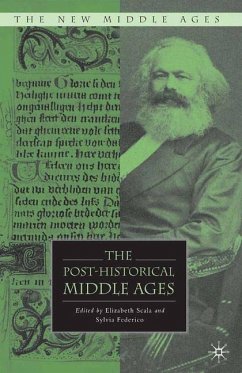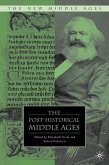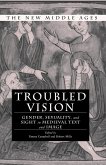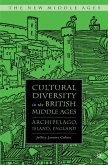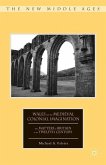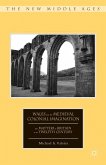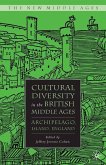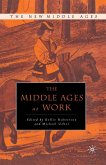This collection of original essays repositions medieval literary studies after an era of historicism. Analyzing the legacy of Marxist and materialist theory on medieval literary criticism, the collection offers new ways of reading texts historically. Drawing upon aesthetic, ethical, and cultural vantage points and methods, these essays demonstrate that a variety of approaches and theories are "historical" and can change what it means to historicize medieval literature. By defining our post-historical moment in medieval English literary studies in terms of new possibilities, this collection will have broad appeal to those interested in the English Middle Ages, history, culture, and reading itself.
"A superb collection of fearless essays. About its potential impact, one could say that it anatomizes the present field of medieval literary studies and points in the direction the field should go in the future - except that the volume as a whole so fully explodes the concept of a unitary present and a single direction in which any field progresses. Suffice it to say, then, that the challenges posed by these smart essays are not ones that any historically minded literary critic can easily shrug off - like the past itself, which has its ways of living with us." - Carolyn Dinshaw, Professor of Social and Cultural Analysis and English, New York University
"Seeking neither to bury nor to praise historicism, this vital collection instead provokes much-needed discussion about the oftentimes tacit commitments of the historicist modes of inquiry that have dominated medieval literary studies for well over two decades. A curiosity cabinet of medievalisms, the individual contributions - while espousing a variety of critical allegiances - all scrutinize what is at stake in the stories we tell about the past as well as our own desires to have the past speak to our current selves. Multiple questions come under examination here: What is the allure of the alterity of the medieval and what are its possible consequences? From whence issues the hegemony of historicism? Can materialism exist independently of historicism? In answering these questions and posing many more, the distinguished contributions assembled by Federico and Scala will have broad appeal for both those new to the medieval field as well as seasoned scholars." - Kellie Robertson, Associate Professor of English, University of Wisconsin, Madison
"An extraordinarily elegant, lucid, and important collection. These essays demonstrate the rigors of an historical method that they also seek to reach beyond, and the brilliance of its editing makes this a real conversation. Many of these essays are important contributions to historical scholarship, and all demonstrate a canny awareness of the investment of and in "history." Its great irony is that it may come to constitute a determinative moment in scholarly history - the post-Post-Historical Middle Ages - but also the end of attempts to shape medieval studies to fit constricted disciplinary ways of writing and effacing history, especially in cultural studies." - D. Vance Smith, Director, Medieval Studies, Princeton University
"The volume's goal is to unsettle the position of 'business as usual' historicism in literary studies (with reference principally to fourteenth-century British literary studies), but its bold engagement with the politics of criticism, as well as its consideration of the current plight of medieval studies and the humanities more generally, will interest medievalists in all fields." - The Medieval Review
"Seeking neither to bury nor to praise historicism, this vital collection instead provokes much-needed discussion about the oftentimes tacit commitments of the historicist modes of inquiry that have dominated medieval literary studies for well over two decades. A curiosity cabinet of medievalisms, the individual contributions - while espousing a variety of critical allegiances - all scrutinize what is at stake in the stories we tell about the past as well as our own desires to have the past speak to our current selves. Multiple questions come under examination here: What is the allure of the alterity of the medieval and what are its possible consequences? From whence issues the hegemony of historicism? Can materialism exist independently of historicism? In answering these questions and posing many more, the distinguished contributions assembled by Federico and Scala will have broad appeal for both those new to the medieval field as well as seasoned scholars." - Kellie Robertson, Associate Professor of English, University of Wisconsin, Madison
"An extraordinarily elegant, lucid, and important collection. These essays demonstrate the rigors of an historical method that they also seek to reach beyond, and the brilliance of its editing makes this a real conversation. Many of these essays are important contributions to historical scholarship, and all demonstrate a canny awareness of the investment of and in "history." Its great irony is that it may come to constitute a determinative moment in scholarly history - the post-Post-Historical Middle Ages - but also the end of attempts to shape medieval studies to fit constricted disciplinary ways of writing and effacing history, especially in cultural studies." - D. Vance Smith, Director, Medieval Studies, Princeton University
"The volume's goal is to unsettle the position of 'business as usual' historicism in literary studies (with reference principally to fourteenth-century British literary studies), but its bold engagement with the politics of criticism, as well as its consideration of the current plight of medieval studies and the humanities more generally, will interest medievalists in all fields." - The Medieval Review

